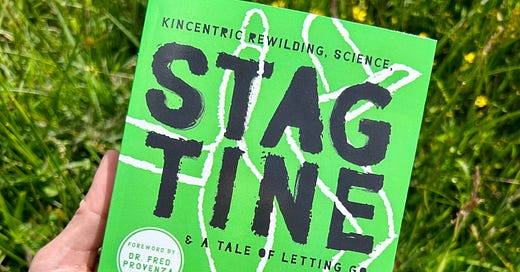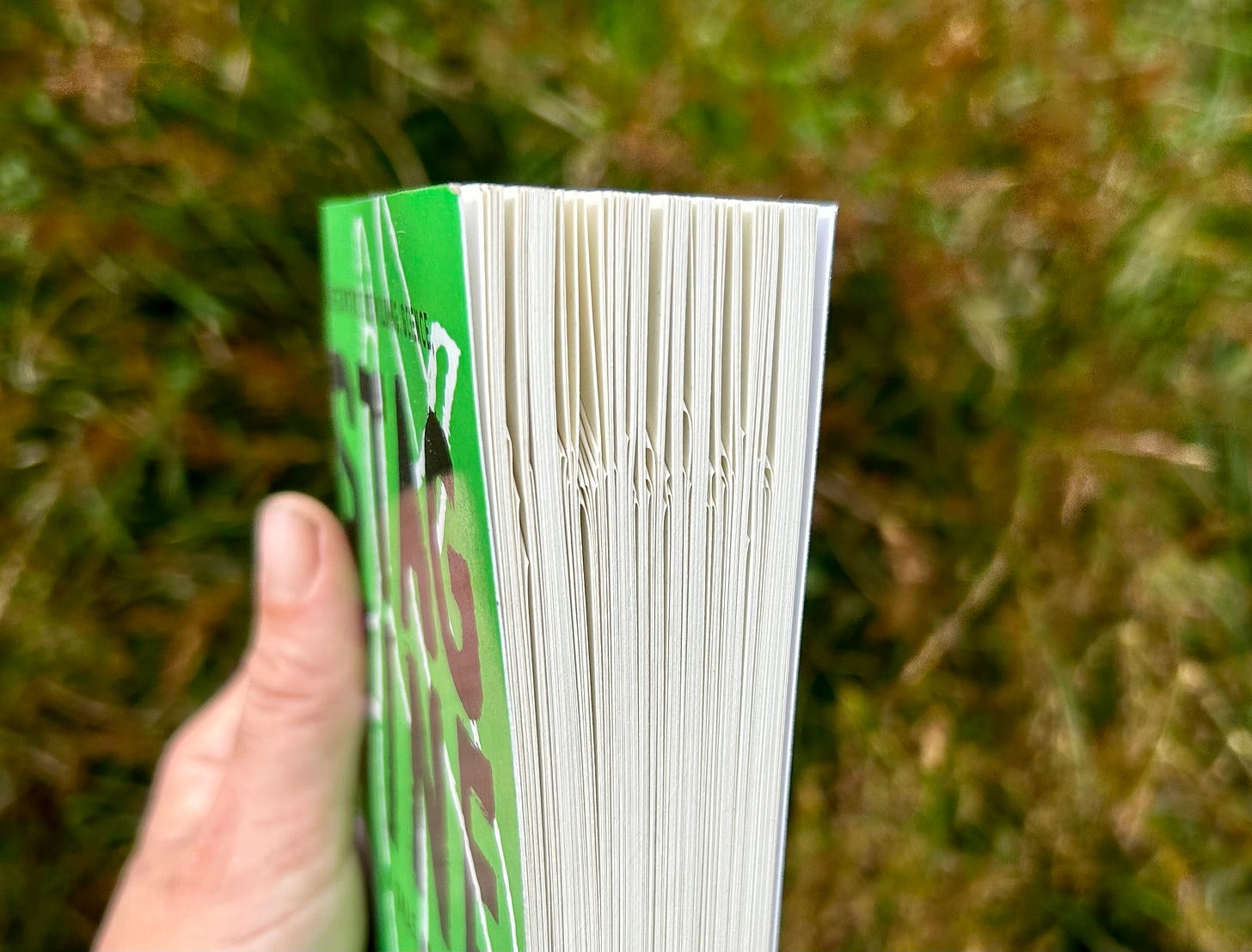I am blessed to have made Daniel’s acquaintance via this platform, and honoured to call him a friend and kindred spirit. Daniel thinks outside the box, he questions, he feels, he seeks truth, depth, nuance, and I like that. And I love Daniel’s writing. His use of language is eloquent, poetic, flourishing. His words paint pictures, and ripple with resonance. So, when Daniel reached out a few months back to ask if he could send me a copy of his latest book, Stagtine, what an honour!
In Stagtine, Daniel brings us on a personal journey with his wife and their young family, of their transition from a struggling regenerative farm, to letting go and learning to run with and be guided by their herd and land in a co-creative relationship that they call kincentric rewilding. Daniel fluidly blends his story with deep and thorough research, and throughout challenges the status quo with a running question: is this true?
This book will take everything you think you know about regenerative agriculture and turn it upside-down. It will challenge everything you think you know about animal husbandry, and your role as herder/stockman/farmer. It might make you uncomfortable. It will question your truths. Or, it will confirm your inner knowing with ripples of recognition and let you off the hook for leaving the fences rolled up and your herd run themselves because you knew, because your herd has been telling you, despite everything the books say, that all your attempts at control were getting in the way of their innate intelligence, their ability to think and fend for themselves, and thwarting the land’s ability to respond and adapt to the pressures of your herd. And you will thank Daniel for being open enough to see it on his own farm, humble enough to listen to his herd, and bold enough to say it. And you will breathe a sigh of relief as you let go and watch your herd merge into their landscape, and their landscape flourish to meet them.
Daniel is a gifted wordsmith, a masterful storyteller. His words are riveting, his story compelling and ringing with profound, nerve-tingling truth. Daniel’s words carry so much resonance, the story he tells in Stagtine of learning to live in coherence with the land, and be guided by his herd, in parts closely mirroring my own journey, his words giving substance (and the science to back it) to my own yet incohesive feelings, instincts and observations. And there are parts of it that have stretched the limits of my thinking, given me meat to chew on, as a good book should.
I have a bad habit of dog-earing the corners of book pages. Whenever I come across quotable passages or nuggets of information that I might someday want to come back to use or revisit, I fold the page corner. I know, I could use little tabs, but really, do I look that organised? Anyway, I do believe a good book is like a good friend: someone you visit and revisit and hang out over coffee with until you grow old and tattered together. If you’re ever perusing through my bookshelves, you can get a pretty good count of how highly I rate a book by the number of dog-eared pages. This is how highly I rated Stagtine:
Apparently, a lot of people have fallen out with Daniel over this book. He’s been told he’s single-handedly destroying the regenerative movement. I think that as soon as any movement goes mainstream and gets co-opted by the likes of Kellogg’s and Bayer, it’s already destroyed itself. This book threatens paradigms. But this book isn’t even about regenerative agriculture; it’s about rewilding. But not stepping back. No, it invites us to let go of our control over nature, and step in to relearn our right place as humans, as herdsmen/women and hunters, as Earthlings: to run with the wild.
My copious dog-earing could have been slightly influenced by Daniel’s generous copyright (or lack thereof) by which he gives full permission to use his words and ideas without limitation, according to our own moral judgement. There is so much in here that I would quote entire chapters. How about I just point you to Daniel’s substack and website and let you read his words yourself.





Completely agree with you and with what Daniel says. Here we're trying yes to implement an ecocentric perspective in everything we do on the land we tend and in our lives. That means letting go of thinking we humans know best, and as you say to learn to listen, look, learn in kinship with the other-than-human. Thank you for this post.
Would love to have a read Carly. Do you have recs for an Irish stockist?